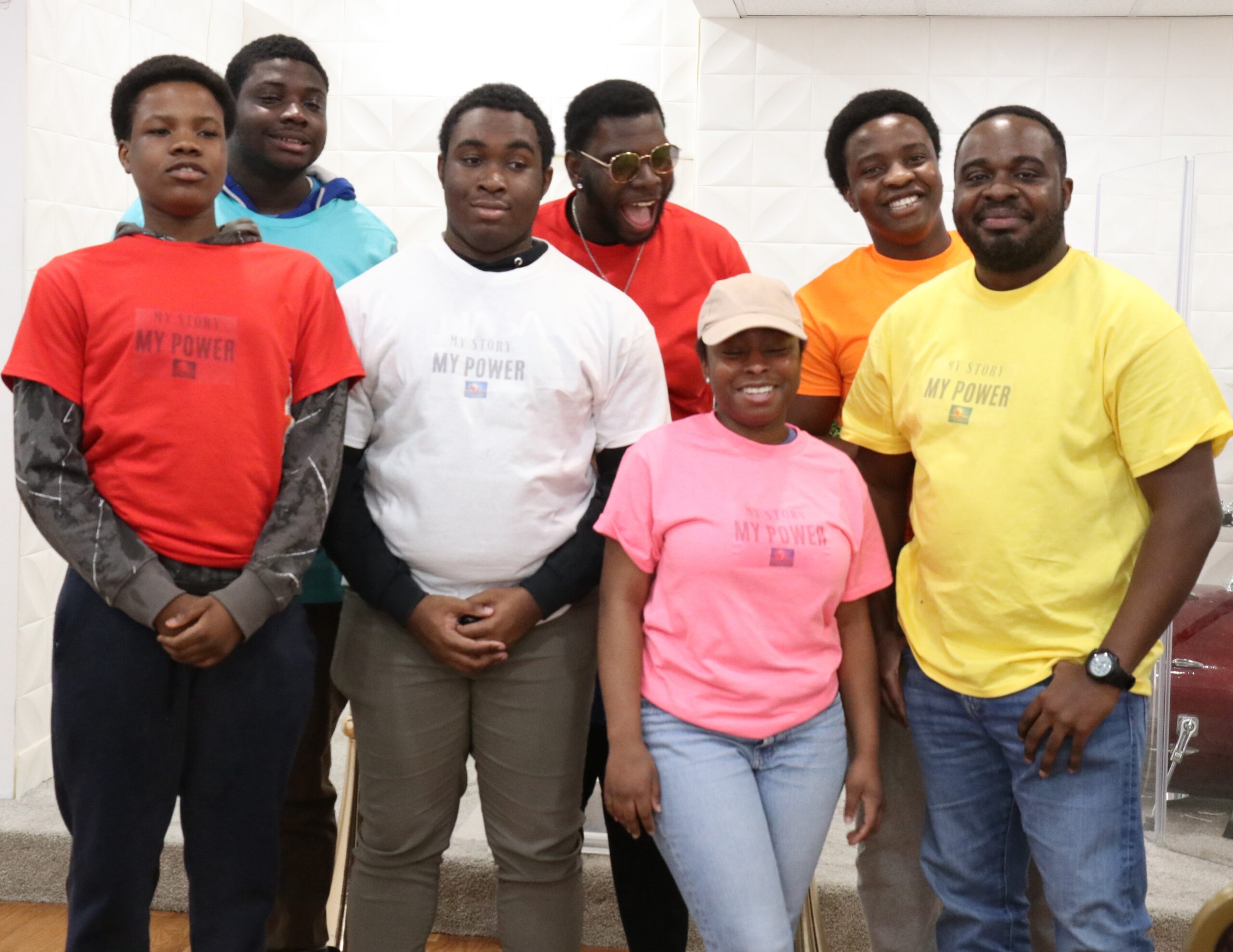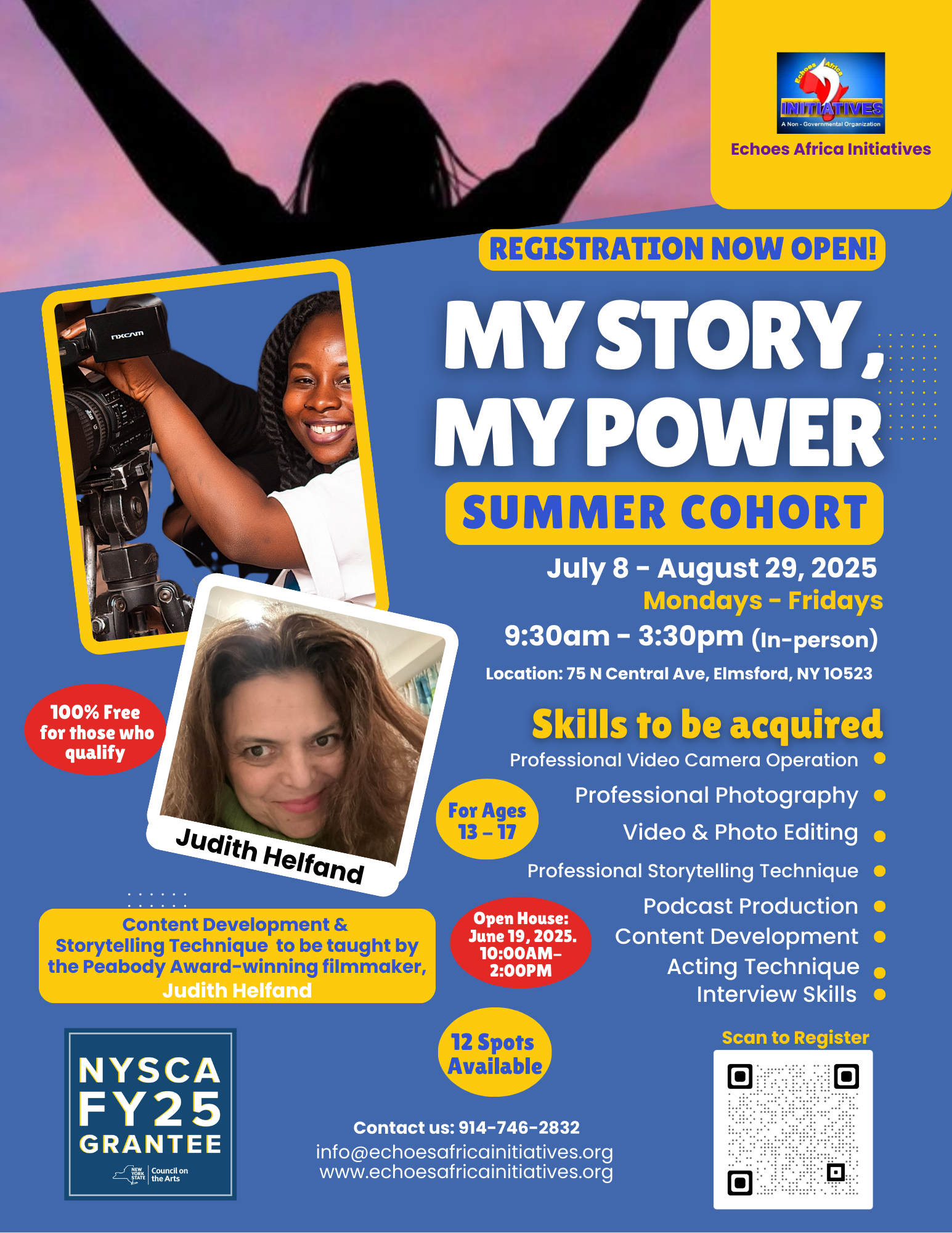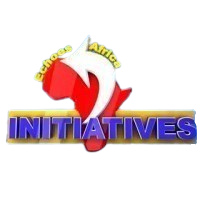My Story, My Power
The quest to engage, empower, redirect purpose and bridge the gap of social justice for the younger generation in marginalized communities informed the conceptualization of the “My Story, My Power program”.
Through this program, we engage and empower teenagers and young adults in New York- particularly those from marginalized communities, in the art of storytelling through video and photography. The beneficiaries of this program gain professional storytelling techniques and are trained in professional videography, video editing, photography, script writing, content development, acting, and interview skills that could potentially change their lives for good.
The beneficiaries of this program gain professional storytelling techniques and are trained in professional videography, video editing, photography, script writing, content development, acting, and interview skills that could potentially change their lives for good.



After-School Program
In the after-school program, three cohorts of teenagers are trained per year, for a 3-month duration and one month internship during which they would complete their final group productions.
The program runs Mondays-Fridays from 4:00pm – 5:30pm. Participants can choose full time attendance (Monday-Thursday) or part time (2 days a week). Transportation is available for pick-up and drop-offs at no extra cost.
The after-school program has 2 separate groups based on age (ages 13-15, and ages 16-17). The program runs in the Spring and Fall school semesters.
At the end of each semester which concludes the training of a cohort, participants’ group production will be screened at a community event with families and members of the community in attendance.
Young Adults in Recovery Programs
Three cohorts of young adults in recovery programs are also trained a year. The program for teens and young adults in recovery are separate from the after-school program and run at separate times. Acceptance into this program is strictly on referral basis.
A total of 72 participants will graduate from this program each year. Each cohort will be trained for 3 months, which includes on-the-job training with our in-house production- “Echoes from the Valley.”
At the end of the 3-month hands-on program, the participants would be professionally equipped to create and develop story ideas, operate professional video cameras, take photographs, and acquire the skill of professional video and photo editing.
Our participants are trained by professionals in the industry who understand the demography we’re working with and work with them based on their individual capabilities. For the safety of our participants, background checks and regular drug tests are carried out on all our trainers to ensure the safety of the people we serve.
Participants are encouraged to work in groups and on completion of the training for each cohort, they work with mentors who guide them through the process of producing their first original story. The productions by our participants are premiered in the community at a community event, as well as broadcast on public access TV stations and social media platforms.
An integral and important part of the program for both the after-school, and for those in recovery programs is the mental health component which is a key part of the curriculum. Twice a week, a mental health expert is invited to lead each cohort in a mental health/self-care session with the trainers and trainees fully participating. This is a non-medical, non-judgemental, interactive and engaging session that does not put the spotlight on any individual but rather, creates an atmosphere where everyone is free to speak up, share their thoughts, challenges, victories and dreams. Yoga and mindfulness exercises are incorporated into the session.
This program achieves the following:
Engage the teens and young adults: Keep them busy with a field they will hopefully come to love which will help re-channel their focus and keep them off the streets and out of trouble.
Empower them: Hand power over to them by equipping the participants with a lifelong skill with which they could potentially build a career.
Give them a purpose: Helping them discover their creative abilities and the power they hold in their hands at the completion of this training will give them a purpose and potentially, help them become better versions of themselves and contributing members of society.
Raise a new Crop of Storytellers: The more storytellers we have in the communities, the better we’re able to tell stories about the plight of the underrepresented and misrepresented with the purpose of galvanizing social change for underserved communities.

